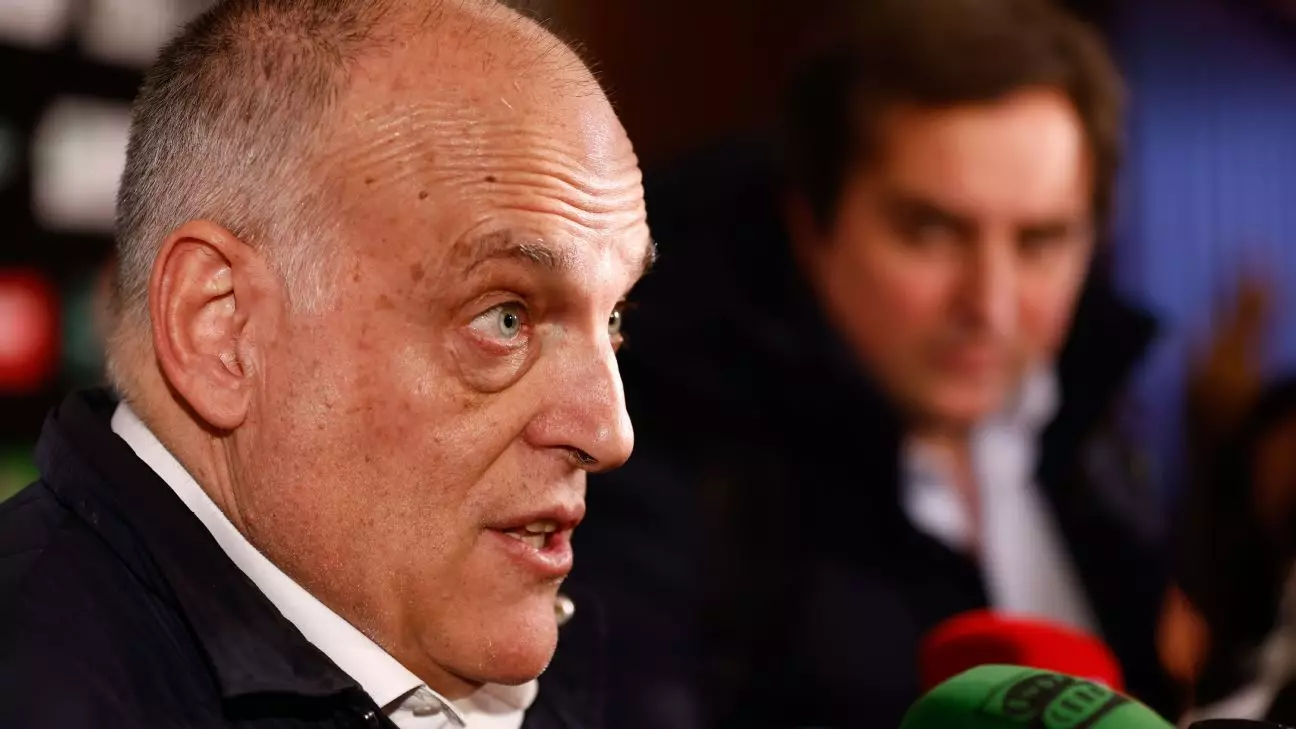LaLiga, Spain’s premier football league, has its fair share of controversies, but none have stirred the pot quite like the ongoing tensions between Real Madrid and the league’s president, Javier Tebas. The friction primarily revolves around accusations of biased officiating and the broader implications of what it means for the integrity of the league. In this article, we will explore the dynamics at play, the reactions from both parties, and the potential consequences for Spanish football.
Real Madrid, one of the most successful football clubs globally, has historically maintained a strong presence not just on the field but off it as well. Their grievances concerning officiating decisions have intensified, particularly when outcomes do not align with the club’s expectations. The club has taken a proactive approach by broadcasting its criticisms on official platforms and expressing concerns about refereeing decisions through media channels. This has led to accusations of an ongoing campaign against the club, a situation that Tebas openly challenges.
Tebas has vehemently opposed Real Madrid’s narrative, framing it as an exaggerated story of victimhood. His comments suggest that Madrid’s portrayal of themselves as perpetual victims of a supposed conspiracy is not only unfounded but also damaging to public perception of the league. Rather than confronting their own shortcomings, he argues that the club is constructing a narrative to justify successes and failures based on external factors—specifically, the performance of referees.
The crux of Tebas’s defense centers on the need to uphold the integrity of LaLiga. By alleging manipulation and bias, Real Madrid inadvertently undermines the credibility of the league as a whole. In response to Madrid’s open letter to the Royal Spanish Football Federation (RFEF), in which they accused officials of “manipulation and adulteration,” Tebas has made it clear that such claims are damaging to all clubs involved in the competition.
Tebas has insisted that he will not allow allegations aimed at discrediting the league to go unanswered. He stated, “We have to defend the competition and its clubs,” indicating a commitment to maintaining a level playing field. His stance seems to be that while Real Madrid may feel aggrieved, it’s crucial for all clubs to operate under a system of fairness and transparency, free from accusations that can potentially tarnish their reputations.
Recent events have also pointed to rising tensions among fans, evidenced by chants directed at Tebas during matches. These developments illustrate the extent to which the narrative has permeated fan culture, where discontent with referees has manifested into vocal displays of dissatisfaction, challenging the authority of league officials. Tebas’s dismissal of the chants as “prepared” highlights an underlying tension between league authorities and fans, who may feel that their voices are not being adequately represented or heard.
Such situations raise important questions about the role that fan sentiment plays in shaping the narrative around officiating and league management. The relationship between fans and governing bodies is complex; while fans amplify grievances, their voices can also become tools for manipulation by clubs seeking to distract from internal issues.
In addition to his allegations against Real Madrid, Tebas is also embroiled in another controversy involving the registration of players. Specifically, he has called for Dani Olmo, a newly transferred player, to not be allowed to continue playing for FC Barcelona due to registration issues stemming from financial fair play regulations. This case illustrates the ongoing battle within LaLiga to enforce compliance among clubs, reflecting broader issues related to financial health and operational integrity in football.
Tebas’s commitment to enforcing these regulations puts him at odds with Barcelona, who recently circumvented challenges to Olmo’s registration through political channels. This situation underscores the tension between complying with football regulations and the pressures of maintaining competitiveness within the league.
The conflict between Real Madrid and Javier Tebas reveals deep-seated issues within LaLiga, encompassing accusations of bias, the need for integrity, and the balance of power between clubs and governing bodies. As both sides continue to navigate the turbulent waters of public opinion and internal governance, the future remains uncertain. The ongoing dialogue reflects the complexities of modern football, where emotions run high and the stakes are even higher. The outcome of these disputes will undeniably shape the landscape of Spanish football for years to come.

Leave a Reply